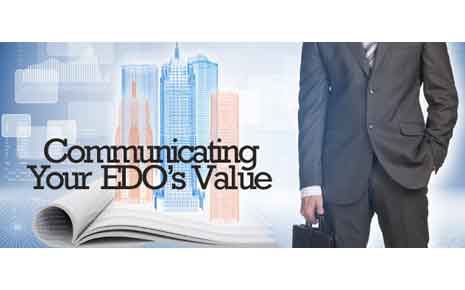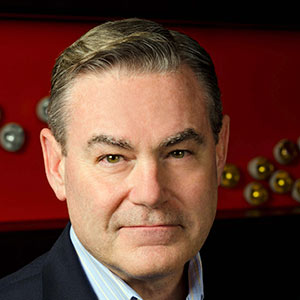During the IEDC Annual Conference in Anchorage, I was honored to participate in the panel session, 'Because We're Worth It: Communicating Your EDO's Value.' One of my fellow panelists, Allison Larsen, CEcD, is Principal of the successful economic development and site selection consulting firm TadZo. While I am used to discussing the importance of communicating value to potential funders within the context of a capital campaign, I was very interested to hear her thoughts on the role that strategic planning plays in identifying, developing, and communicating value to an even broader target audience.
After the conference, Allison and I got together to discuss each other's presentations in further detail. Allison offers great insights on communicating your outcomes to target audiences other than funders in contexts other than fundraising in the following interview:
Allison Larsen, Principal of TadZo, has over 17 years of economic development experience and more than 10 years in international business management and sales. With experience working in over 71 communities across 23 states/provinces, Allison tracks best practices, what works and what doesn't to draw upon for potential solutions in each unique situation facing a community.
You spent a good portion of your presentation discussing the varying types of target audiences to whom EDOs need to demonstrate their value. Could you please talk about the differences between communicating value to potential funders versus other audiences?
Sure, Tom my point is that an EDO has a variety of audiences, not just funders who keep the doors open all with different interpretations of what 'value' means to them. While funders - public or private-sector may be thinking 'What am I getting for my investment?' other audiences have different interests. For instance, elected officials may be thinking, 'How will your organization help me serve my constituents?' While economic development partners consider 'Why should we work with you? How does your organization add-value to our efforts and outcomes?' And increasingly, employees and employee candidates for an EDO contemplate 'I can work anywhere. Is this an organization where I will build my skill set and my career development? Is this a place I can make a difference?'
During the Q&A portion of our session, several members of the audience asked 'As a small organization without the time, staffing, and funding to track, develop, and communicate value, how do we even get started?' How do you address this concern from a strategic planning point of view?
No matter an EDO's size, it is important to develop a strategic plan. How the plan is developed is where value begins. A good strategic planning process provides an environment for a lot of input and engagement of community stakeholders, partners and even funders. With robust input and sharing, an EDO can understand what's most important to the community and build agreement for the EDO's priority work.
A good plan also defines regular intervals for review of results and corresponding reporting. The reporting, although easier with some database tools to reduce administrative time, does not have to be complicated. What's important is sharing results along the way, not just annually or during a fundraising campaign.
In your presentation, you discussed the 'What's in it for me?' motivation of creating interest in and support for your organization. We frequently discuss how to address this from a targeted, one-on-one funding 'ask' point of view, but how do EDO's address the 'What's in it for me?' motivation in a broader, marketing approach?
First, profile each target audience - What is top of mind for them? What do they fear? What makes them happy? Proud? Surveys and social media can be useful instruments to gather this research and build on the engagement of the planning process. Then frame information that aligns to their interests. Make data 'sticky' or memorable with stories that illustrate the personal benefit of the data. It's easy for economic development marketing to fall into the trap of overusing technical terms and acronyms. I call this 'economic development to death' and audiences tune out quickly. It's better to convert complex data into simple concepts which are relatable.
See the questions that Allison had for me about communicating an organization's value for fundraising purposes by visiting her blog and hearing the other side of our interview.






